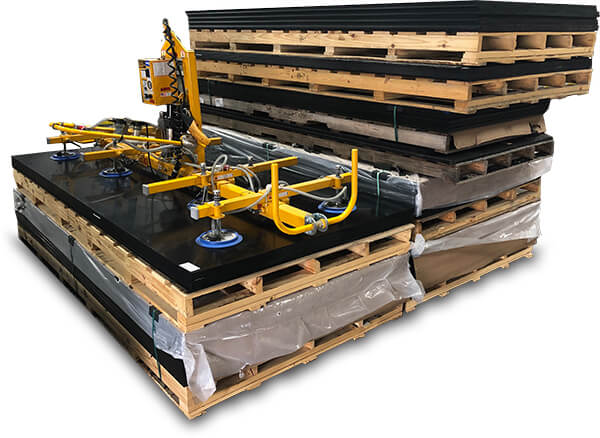Polypropylene
is one of the most versatile polymers available.
Replacing a Steel Water Tank with Polypropylene
It all started when the founders of our parent company, United Plastic Fabricating, Inc. (UPF), were investigating different types of materials to address the corrosion and leaking issue of their steel water tank in their fire truck. In the mid-1980s, most fire trucks had a steel water tank, as steel was the predominant material of choice. It also offered a relatively low raw material cost and was compatible with the processes and skilled labor used in fire apparatus manufacturing.
Moreover, after closely analyzing the steel water tank, our founders concluded that corrosion was not the only issue. They also found out that the steel water tank was causing the water nozzles to clog and required annual maintenance. Also, it caused a premature failure of the truck bodies due to the rust caused by the water loss of the leaking tanks.
Expensive pumps and valves were damaged from electrolytic corrosion (electrolysis) caused by dissimilar materials in water-wetted areas. Therefore, this necessitated the need to add anodes to use as a sacrificial material to prevent damage to the truck’s components.
They considered using fiberglass and aluminum water tanks for their fire truck because aluminum and glass fiber reinforced polyester (GRP) was tried to a greater extent to address the issues associated with steel tanks. However, these materials had significant deficiencies, primarily cracking with aluminum and dimensional variability, cracking, and mold limitation with GRP
Therefore, a stainless steel water tank would offer a sound alternative to corrosion. However, the weight was still an issue. There were new concerns introduced; namely, material cost and microbial attack of weldments surfaced as a significant issue as field exposure increased.
The Alternative to a Steel Water Tank, Stainless Steel, Fiberglass, and Aluminum Water Tanks.
After considering the numerous alternatives for their rusted and leaking steel water tank, resulting in a light bulb going off. Why not a tank made of plastic? After completing their research, they discovered that a tank made from homo polypropylene had numerous advantages that made it superior to stainless steel or a fiberglass water tank in many different ways.
What made Polypropylene the material of choice was mainly due to its high strength to weight ratio, its resistance to rust and corrosion, and the ability to offer a lifetime tank warranty to the fire service. Additionally, other important benefits include the design flexibility with accurate tank dimensions and the cost savings for a custom design as there is no mold requirement.
Polypropylene's Versatility
This polymer’s versatility (the ability to adapt to a wide range of fabrication methods and applications) has sustained growth rates enabling polypropylene to challenge the market share of a host of alternative materials. Also, polypropylene has proven to be fantastic steel, stainless steel, aluminum, and, fiberglass substitute for many applications.
Polypropylene is an economical material that offers a combination of outstanding physical, mechanical, thermal, and electrical properties not found in any other thermoplastic. It has a lower impact strength but superior working temperature and tensile strength. Noted for its excellent chemical resistance in corrosive environments, polypropylene provides excellent resistance to organic solvents, degreasing agents, and electrolytic attacks. Also, it is light in weight, resistant to staining, and has a low moisture absorption rate.
Polypropylene is one of those most versatile polymers available with applications, both as plastic and in virtually all of the plastics end-use markets.
The Benefits of Poly:
- Low cost: budget-friendly for a wide number of uses.
- Fatigue resistant.
- High-temperature resistance 140 °F continuous. 180 °F momentary.
- Low-temperature resistance -4 °F.
- Chemically resistant to most oils and solvents.
- Excellent impact strength and stability.

- Low coefficient of friction.
- Excellence moisture absorption resistance.
- Non-corrosive and rustproof.
- Non-conductive.
- Lighter than steel.
- Smooth, non-porous.
- Paintable with automotive paint.
- Will not split or crack.
- FDA approved.


